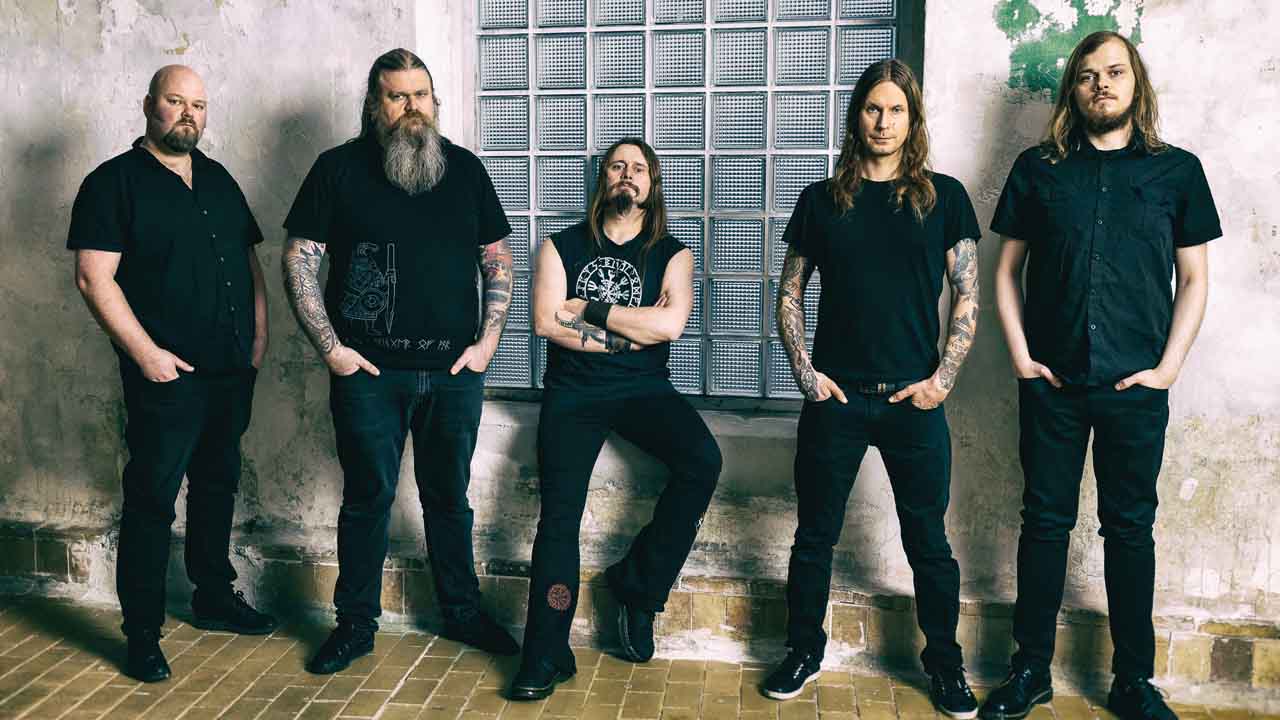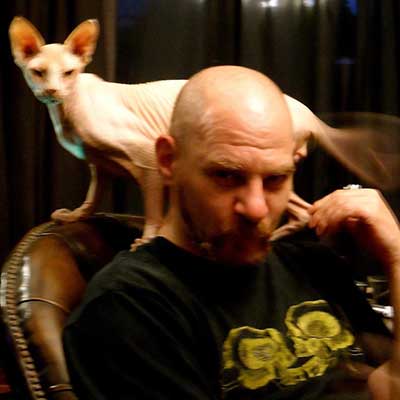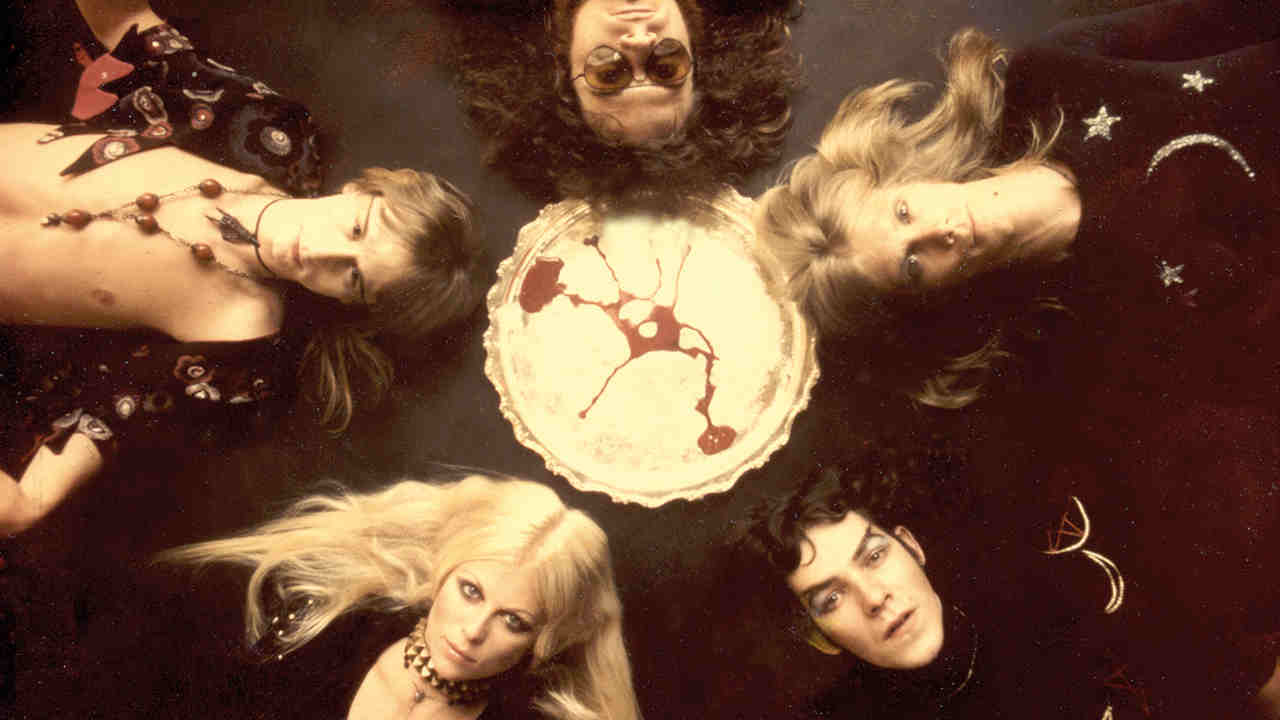Enslaved: “Sacred is a word people have a problem with, but we have a need for it”
Join prog metal mystics Enslaved as they duck out of the chaos of 2020 and journey into the realms of the unconscious

Select the newsletters you’d like to receive. Then, add your email to sign up.
You are now subscribed
Your newsletter sign-up was successful
Want to add more newsletters?

Every Friday
Louder
Louder’s weekly newsletter is jam-packed with the team’s personal highlights from the last seven days, including features, breaking news, reviews and tons of juicy exclusives from the world of alternative music.

Every Friday
Classic Rock
The Classic Rock newsletter is an essential read for the discerning rock fan. Every week we bring you the news, reviews and the very best features and interviews from our extensive archive. Written by rock fans for rock fans.

Every Friday
Metal Hammer
For the last four decades Metal Hammer has been the world’s greatest metal magazine. Created by metalheads for metalheads, ‘Hammer takes you behind the scenes, closer to the action, and nearer to the bands that you love the most.

Every Friday
Prog
The Prog newsletter brings you the very best of Prog Magazine and our website, every Friday. We'll deliver you the very latest news from the Prog universe, informative features and archive material from Prog’s impressive vault.
In a world with all its bearings intact, Enslaved would have played the Fire In The Mountains festival this July just past. Set on a ranch in the vast Wyoming wilderness, it’s one of those events that binds environment and community into a bigger whole, the workshops and talks that were to take place alongside the live sets all guiding the attendees to rekindle rhythms too easily abandoned to our skittish, modern consciousness.
Ivar Bjørnson, Enslaved guitarist and, along with frontman Grutle Kjellson, founder member of a band whose musical and philosophical horizons are ever expanding, is taking the long view: “We’ve been around for almost 30 years, so what’s another decade?” he laughs.
“They had this incredible non-music programme,” he continues from his Bergen home. “We were looking into Grutle doing a fishing workshop in the nearby rivers, and there would be people nearby farming. The festival had a good connection with the Native American community around there, which was also involved. My friend Jonas Lorentzen, who did the wolf howls on Heilung’s live DVD, had looked at some Utgard myths, and put together a plan for cooking in accordance with food mentioned in the mythologies. It was a complete thing going on.”
- The 40 best black metal albums ever
- 10 of the best metal bands from Norway
- Emperor’s In The Nightside Eclipse: the album that transformed metal’s evilest genre
- 10 Essential Progressive Metal Albums
That notion of finding resonances far from home, of deepening your own roots by seeing them in relation to other cultures, is a theme that runs throughout Enslaved’s latest and 15th album, Utgard. Named after one of the nine realms in Norse cosmology and the mythical, chaotic and primordial home of the Norse Jotun giants, it’s a journey into a metaphor-rich heart of darkness, but with all the grace, flint-edged determination and billowing, progressive wanderlust that’s made every album a celebratory step into the breach, transmuting their blackened beginnings into a kaleidoscopic quest for knowledge.
If there is a centre point for Utgard, it’s one of the two lead singles, Homebound. Like the rest of the album, it’s streamlined, still masterfully seguing between moods as characteristically driving riffs open out into the most hopeful of swells, but with a renewed focus after the multi-layered predecessors, In Times and E. It’s a song of rebirth and journeying within (‘Unmoving we travel / Crossing oceans in mythological dreams’), in thrall to its own transitional state.
“A lot of the things we are dealing with on this album relate to the concept of travelling, exploring and experiencing yourself in new settings,” says Ivar. “The more rooted you are in your own history, the easier it is to relate to others around the world. Of course, when we made the album, we didn’t expect COVID-19 to hit, but it’s been made really clear how necessary it is to travel, to see connections and parallels with how people are shaped by their environment. Whether it’s urban or the vast mountains of Wyoming, it’s important to connect.”
Making those connections isn’t just an act of mutual goodwill. For Enslaved, it comes with an understanding that our histories and mythologies are reservoirs of ancestral knowledge and ongoing dialogues, both with other cultures and ourselves, and whose relevance remains undimmed.
Sign up below to get the latest from Metal Hammer, plus exclusive special offers, direct to your inbox!
“Mythologies are histories of the psyche of people in a certain geographical area,” says Ivar. “Seeing the similarities, and how these archetypes seem to be a common denominator, is comforting. But even though we have this common humanity, we still choose to do such vastly different things. I don’t want to call myself disillusioned, but I think this album is describing coming through a storm. I don’t want to spend time pointing out how people are misusing the human condition, but focus on enjoying our own communities and expanding upon that, making our world a good place to be.”

The wider movement that Enslaved have found themselves a part of – the elemental retuning of Wardruna, Heilung, Neurosis and others – feels like a response to our cultural micro-managed war of attrition: our constant, reactive checking of news and social feeds that doesn’t offer the opportunity for self-reflection so much as place you in a hall of mirrors, unable to gauge a genuine centre. As Ivar explains, in order to find ourselves, we need to look for something more enduring.
“‘Sacred’ is a word some people have a problem with because it has religious connotations, but I think we have a need for it, something that is ‘other’. That ‘otherness’ is within all of us, and that’s part of what we are exploring on Utgard. Yes, Utgard is a reflection of the shadow world within us all, but it’s not necessarily all evil and dark and horrible. It’s unknown, it’s alien, strange, but a lot of the time that’s where you find creativity and humour. What sometimes seems to be the ‘dark places’ aren’t necessarily bad places, but they do demand a certain courage to go there. Part of the experience is seeing the layers of yourself, beneath the immediate. A lot of the things that [make us] think, ‘This is me, this is my values’… much of it is just imitations of expectations around us.”
What is the personal necessity, and the cost, of entering these spaces?
“It is uncomfortable, and I think that’s one of the explanations for why we have rigged the world around us like we have, with this massive and rapid stimulation from information and entertainment. Being alone with your own thoughts can be scary, but there is a difference between being self-critical and self-loathing. The first one might give you some benefits; you can change the parts that are not really working if you challenge them, rather than just thinking something is wrong with you.”
One of the major thematic reference points for Utgard was a little closer to the modern day: 20th century Swiss psychotherapist Carl Gustav Jung. His recognition of the ‘collective unconscious’ – the deepest strata of consciousness shared by us all, and the source of all our fears and instincts but also of the archetypes that resonate across cultures – not only finds a potent metaphor in the album’s titular realm, his teachings have resonated deeply across the wider mythological and occult landscapes too, not least due to Jung’s own interest in the mystic arts. As with Ivar’s fascination for comparative mythologies, the lessons of Carl Jung offer a connection between realms we might have otherwise thought distinct, and, through that, a deeper understanding of what it means to be human.
“Culturally, I think it’s because he was bridging the holy with the rational,” says Ivar. “His theories and his teachings allowed us to be the people that we were before everything was squared out and politicised. We lost a sense of wondrousness in the process, but he was offering a definition of it that had a scientific, or at least a psychological explanation. It was a recognition of being human as both magical and yet sensible and rational.
“For me, in what he’s writing there’s some kind of compassion for humans and this need for something that is sacred, otherworldly and fantastic. That’s neither a disadvantage nor a superpower. It is part of what it is to be human, and we all share that.”
It seems a good response to the current moment: to seek out the unknown, and to listen to the voice of uncertainty.
“Yes. Nothing is true, kind of. And on the flipside, everything is true! Everything is at least possible, and I think that’s a comforting stance. It sounds chaotic, it sounds like disarray and not grounded, but it’s a wonderful starting position to view the world, to not have these dogmas. I’m much more interested in catmas! Ha ha ha!”

Having freelanced regularly for the Melody Maker and Kerrang!, and edited the extreme metal monthly, Terrorizer, for seven years, Jonathan is now the overseer of all the album and live reviews in Metal Hammer. Bemoans his obsolete superpower of being invisible to Routemaster bus conductors, finds men without sideburns slightly circumspect, and thinks songs that aren’t about Satan, swords or witches are a bit silly.

